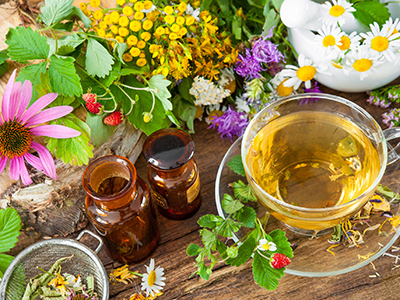Table of Content
Don’t put off addressing your overactive bladder symptoms. Remember that early treatment can reduce or even completely get rid of unwanted OAB symptoms. Yes, turmeric contains a compound known as curcumin, which may help improve the contractibility of the bladder and hence, help reduce the symptoms of an overactive bladder . Train your bladder to hold in the urge to urinate every now and then. Gradually work your way to pee every 3-4 hours instead of every minutes. Your diet may also have a significant role to play in treating an overactive bladder and alleviating the symptoms.

Women who have given birth, too, suffer from this condition, but it usually stops with time. Too little water can lead to concentrated urine, which can irritate the bladder lining, increasing urgency. Fluid intake before bed can contribute to urinating during the night. Although natural remedies can be beneficial for alleviating UTI symptoms and preventing recurrent UTIs, they may not be effective in treating the infection. It may seem unnecessary to see a doctor for such a common illness.
What Studies Say About Urinary Tract Infections
It is rich in flavonoids and is helpful in relieving bladder control symptoms by reducing inflammation and protecting the bladder wall against irritation. There are a number of bladder control techniques you can apply, including scheduled urination, delayed urination, and double-void technique. The remedies, tips and tricks specified here are solely for the informational purpose. Consult your health care expert or doctor before trying any home remedies.

Therefore, it is best to minimize or even avoid caffeine. Switch to eating chocolate that contains less caffeine, such as white chocolate. Factors that interfere with flow from the bladder such as prostate tumors or the effects of treatment on the sub-framework. OAB happens in both men and women and you can suffer from it at any point in your life. However, this condition seems to be common in older adults . Once you feel the need to pee, see if you can hold off for five minutes and work your way up.
Home Remedies For Treating Overactive Bladder Problems
Mouth ulcers commonly develop as a side effect of meth use. Here's why they happen, plus tips on treatment and support for stopping meth use. The herb is actually derived from saw palmetto berries. According to the National Center for Complementary and Integrative Health , it’s been traditionally used to treat OAB in men with prostate problems. According to the study, significant improvements in OAB symptoms were observed.
This retained urine in the bladder creates a risk of spreading bacteria and infections. Age – As we have mentioned before, age is a huge factor that contributes to the issues of urine leakage. What happens is that with age, your muscles and nerves in and around the urinary tract become weak.
Herbs The Word: Help For Overactive Bladder
Person with overactive bladder is unable to control his urine and is unable to hold his urine as well. It can cause social embarrassment and problems in relationships. Hence it is better to treat it using some home remedies that have properties to cure this problem. Overactive bladder is not a disease hence there are minimal options for treating it medically.

The Food and Drug Administration regulates herbs as dietary supplements but doesn’t approve any herbs as medications to treat specific illnesses or medical conditions. Hopefully, these home remedies for overactive bladder will help you to get your bladder under control. Like to share your story of overactive bladder problems after hysterectomy, feel free to leave a comment in the box below. In order to get better control over your urge incontinence, first of all, you need to make certain dietary changes and secondly, try to manage your fluid intake. The double void is another natural way to deal with OAB, especially at night.
This is another must-try home treatment in this list of home remedies for overactive bladder. In addition to Kegel exercises, you can do the following 5 exercises to improve the health of the pelvic floor muscles. Remedies for Overactive Bladder – Overactive bladder is a condition in which there is a feeling of passing urine again and again. Some natural remedies can be effective in this problem.

A strong and sudden urgency to go to the bathroom more frequently than average, which is 6-8 times per day and once at night. There are various natural remedies that may help to treat OAB. All should be discussed with your healthcare provider, especially the use of any supplements as they may interact with other prescription medications. Children are also prone to develop OAB, but they are also likely to grow out of these symptoms because they learn to control their bladder and recognize the urge to urinate.
More concentrated urine, usually darker in color, can irritate your bladder and cause more frequent urination. Treatment of overactive bladder requires a team approach to properly diagnose, treat and support patients afflicted by these symptoms. If you feel you have symptoms consistent with overactive bladder, don’t hesitate to see your physician to receive expert help with this common problem. In fact, roughly 1 out of every 2 women will get a bladder infection in their lifetime.

Avoid squeezing your stomach, thighs, or buttocks instead of your pelvic floor muscles. Extra weight can also increase the pressure on your bladder and cause stress incontinence. Stress incontinence is when urine leaks after you do something that increases pressure on the bladder, like laughing, sneezing, or lifting.
Smoking can irritate the bladder muscle and cause coughing, which often contributes to incontinence. You can reduce the amount of times you get out of bed by not drinking two to three hours before you sleep. One study found that kohki tea had a significant protective effect on bladder function and contractile responses in rabbits with partial bladder obstruction. Many herbs aren’t well researched and don’t go through quality control processes or human trials to prove their effectiveness. People who took 7.5 milligrams of GJG a day also reported better results on their International Prostate Symptom Score , which records urinary symptoms. They can make it harder to plan trips, cause unintentional disruptions during work, or affect your sleep quality.

Urinary incontinence – Involuntary loss of urine following a sudden urge to urinate. Cleavers – Cleavers has been long used as a primary ingredient of herbal remedies in treating urinary problems as it contains properties that have high diuretic effect. Cleavers also acts as a coating that soothes the inside of the bladder wall, which protects the gland against irritation – one of the primary causes of overactive bladder. Delayed urination means every time you feel the urge to go, you try to delay by some minutes, if possible, usually by at least 5 minutes. You can use relaxation techniques, such as deep breathing to help delay. The aim is to gradually increase the delay time until you have achieved a 3-4 hour gap between your bathroom visits.
Horsetail contains substances that have antispasmodic, antibacterial properties, helping to prevent urinary tract infections and kidney stones. Therefore, it totally can help you with your overactive bladder. When you use horsetail, thiamin levels will decrease, so you must drink plenty of water. This often leads to urinary incontinence or loss of bladder control.

Combining bladder training and Kegel exercises has a high success rate in treating urge incontinence. Apart from Kegel exercises, delaying urination can be considered as another typical bladder retraining technique. This remedy may bring you an uncomfortable feeling, but holding out in few minutes after you feel the urge to urinate can help you retrain your bladder. Some relaxation techniques like deep breathing are appropriate for you when you hold it to reduce the discomfort, but if you can’t stand anymore, go to the bathroom immediately. By increasing the holding time gradually, you can lengthen the gap between bathroom visits to 3-4 hours. As mentioned before, pelvic muscles have functions to hold up the uterus and bladder and weak pelvic muscles contribute to the overactive bladder.

No comments:
Post a Comment